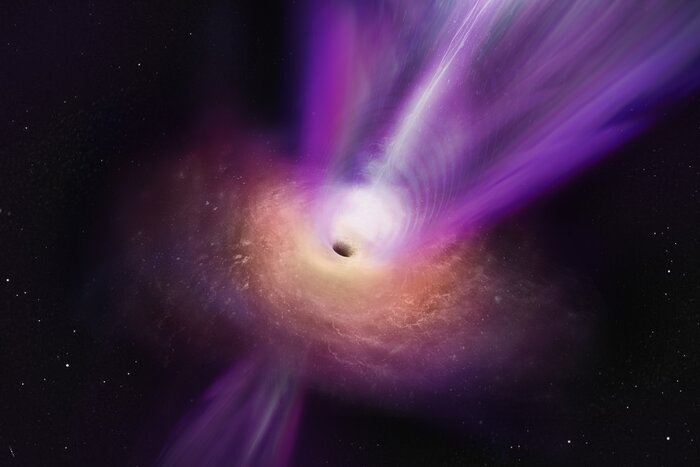Science News Roundup: Black hole is observed snacking on sun-like star, bite by bite; Japan launches 'moon sniper' lunar lander SLIM into space and more
Britain said on Thursday it would re-join both Copernicus and the European Union's Horizon science research programme, ending a two-year post-Brexit standoff over funding. SpaceX's Starship probe ends with 63 regulatory fixes The U.S. Federal Aviation Administration wrapped up a technical investigation into SpaceX's April test launch of its giant Starship rocket, saying in a Friday statement that the company must implement dozens of corrective measures before flying the vehicle again.

Following is a summary of current science news briefs.
Black hole is observed snacking on sun-like star, bite by bite
Black holes, celestial objects known for their gluttony, usually eat stars unlucky enough to stray too close to them in one big gulp, annihilating them with their enormous gravitational pull. But some, it turns out, tend to snack rather than gorge. Researchers said they have observed a supermassive black hole at the center of a relatively nearby galaxy as it takes bites out of a star similar in size and composition to our sun, consuming material equal to about three times Earth's mass each time the star makes a close pass on its elongated oval-shaped obit.
Factbox-Horizon project: Which EU science schemes has Britain joined?
Britain on Thursday said it would join the European Union's flagship Horizon science research programme and its Copernicus earth observation programme, but not the Euratom nuclear research initiative. Here are details of the programmes, and the terms on which Britain is - and isn't - engaging with them.
Britain rejoins EU's Horizon science programme in further boost for ties
Britain said on Thursday it would rejoin the European Union's flagship Horizon science research programme, ending a two-year post-Brexit standoff with the EU over science funding. The agreement, which excludes the EU's Euratom nuclear research scheme, signals a further improvement in bilateral relations seven months after a dispute over trade was resolved, and was welcomed by British scientists.
Japan launches 'moon sniper' lunar lander SLIM into space
Japan launched a lunar exploration spacecraft on Thursday aboard a homegrown H-IIA rocket, hoping to become the world's fifth country to land on the moon early next year. Japan Aerospace Exploration Agency (JAXA) said the rocket took off from Tanegashima Space Center in southern Japan as planned and successfully released the Smart Lander for Investigating Moon (SLIM). Unfavourable weather led to three postponements in a week last month.
Israeli scientists create model of human embryo without eggs or sperm
Scientists in Israel have created a model of a human embryo from stem cells in the laboratory, without using sperm, eggs or a womb, offering a unique glimpse into the early stages of embryonic development. The model resembles an embryo at day 14, when it acquires internal structures but before it lays down the foundations for body organs, according to the team at Israel's Weizmann Institute of Science.
Europe's space agency welcomes UK deal with EU on satellites
The European Space Agency on Friday welcomed a deal for Britain to resume full membership of Europe's Copernicus programme, easing doubts over the next batch of climate-tracking satellites and the completion of development work by European space firms. Britain said on Thursday it would re-join both Copernicus and the European Union's Horizon science research programme, ending a two-year post-Brexit standoff over funding.
SpaceX's Starship probe ends with 63 regulatory fixes
The U.S. Federal Aviation Administration wrapped up a technical investigation into SpaceX's April test launch of its giant Starship rocket, saying in a Friday statement that the company must implement dozens of corrective measures before flying the vehicle again. The April 20 launch of SpaceX's Starship Super Heavy rocket from Texas pulverized its launchpad upon successful liftoff and ascended 25 miles (40.23 km) before exploding roughly four minutes into its flight, as it was attempting a crucial demonstration to reach space for the first time.
(With inputs from agencies.)










